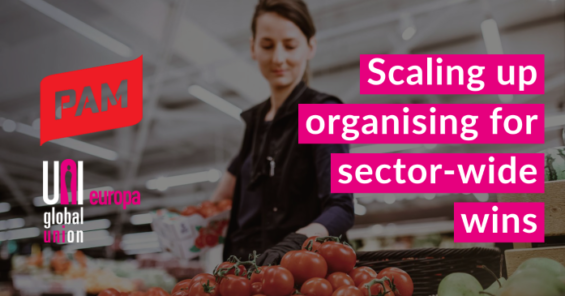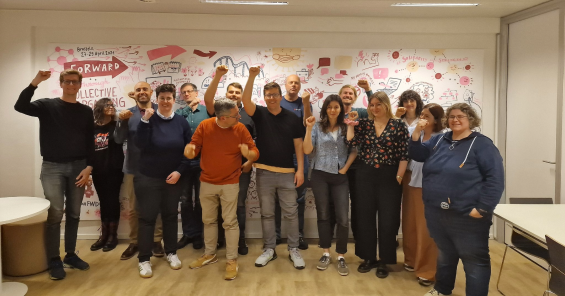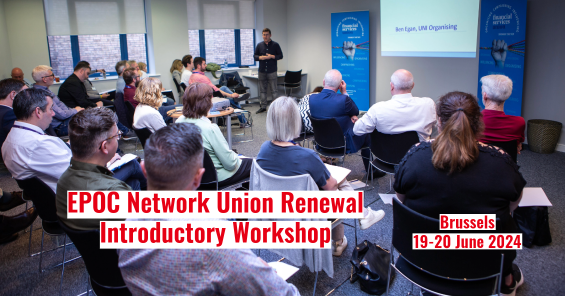All working people deserve safety at work and a fair share of the wealth they create. Through sectoral collective bargaining, workers have been driving up conditions across wide swathes of economic activity. To build national sectoral collective bargaining however, we must start locally. In Finland, services workers and their union PAM have been organising locally and applying the lessons learned to build workers’ power across sectors.
Organising drives generally begin with manageable and deliverable local efforts which can then be scaled up later. But how exactly is this done and what are the challenges unions face in this scaling-up process? This was the topic under the microscope in this month’s meeting of the EPOC network, where Finnish affiliate PAM shared their experience.
Putting workers in the driving seat is a vital component of establishing strong participative worker structures at local level within individual workplaces. This is true for strengthening strike readiness, bargaining collectively and for recruitment.
At PAM, they scaled up this logic across whole sectors. Regular sector surveys are used to determine priorities as well as attitudes towards collective action. This information is then brought to the workplace level with one-to-one follow-up conversations driven by shop stewards and other active members. Having one-to-one conversations among colleagues has been key to identifying joint grievances as well as mobilising for collective action.
A common feature among organising approaches within the EPOC network has been a focus on colleague-to-colleague recruitment. This was confirmed by PAM’s experience and they specifically design tools, including their online recruitment module, to facilitate this. Furthermore, by allowing new members to explicitly name a colleague as their recruiter in their registration form, organisers can keep tabs on what recruitment approaches are working.
PAM’s specific focus in activating workplace structures in sector-wide collective bargaining has helped maintain a high level of engagement throughout the process. By ensuring workers have real ownership over the sectoral level processes and that those processes feed into the conversations happening on the shop floor, PAM have applied organising basics to their sectoral strategy to significant effect as substantiated by the record levels of recruitment in the period prior to the pandemic.
Another element of their organising approach has been the strategic selection of corporate targets. Organising is resource-intensive work and ensuring these resources are used to maximum effect is important. PAM has focussed additional resources on building power on the shop floor in corporations that play a prominent role in sectoral employer organisations. By ensuring that workers have power within those corporations, PAM can further leverage that power to deliver workers’ demands across whole sectors.
Organising is long-haul work. This is true for the basics of building participative workplace structures from workplaces up, as well as for establishing strong political buy-in. PAM’s experience shows that when done well, it can generate the workers’ power that is so essential to delivering improvements at every bargaining level.
The EPOC programme brings together unions from across northern and western Europe to organise in a coordinated and effective way by building workers’ power. Its remit is to defend, extend and (re)build collective bargaining by providing support to affiliates in building sustainable structures. Online meetings of the network take place monthly. If your union is interested in getting involved in EPOC, contact Erkan Ersoy or Ben Egan for more information.


